
There are more than 300 types of iron-bearing minerals found in nature, but only over 20 types of iron ores that can be used as raw materials for ironmaking. The main types of iron ores are magnetite, hematite, limonite and chalcedony. According to the different properties of iron ore, the beneficiation methods are also different. Let's introduce the 4 Common Methods of iron ore concentrate process respectively.
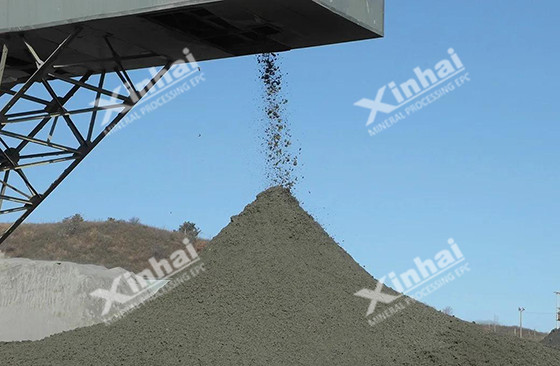
The main iron mineral contained in magnetite ore is ferroferric oxide (Fe3O4). Magnetite contains about 85% of iron ore. The hardness of the ore is between 5.5 and 6.5, and the specific gravity is between 4.6 and 5.2. For its strong magnetism, weak magnetic separation is the main beneficiation method.
According to the mineral composition of magnetite ore, the weak magnetic separation process can be divided into single weak magnetic separation, weak magnetic separation-reverse flotation and weak magnetic-strong magnetic-flotation combined beneficiation method.
Single Weak Magnetic Beneficiation Method
Single weak magnetic beneficiation method is suitable for magnetite ore with simple mineral composition.
The general process is: the ore is first coarsely crushed or medium crushed, and then the tail is pre-thrown using a magnetic pulley. After the tailings are thrown out, the magnetic minerals are separated by continuous grinding-weak magnetic separation process and stage grinding-weak magnetic separation process.
Continuous grinding-weak magnetic separation process: Suitable for magnetite with coarser grain size or higher iron grade.
Stage grinding-weak magnetic separation process: Suitable for low-grade ore with fine grain size.
Weak Magnetic Separation-Reverse Flotation Method
The weak magnetic separation-reverse flotation method is suitable for the iron ore that is difficult to improve the grade of the concentrate or has more silica impurities in the concentrate. After crushing, screening, grinding and classifying, use weak magnetic separation-cation reverse flotation method or magnetic separation anion reverse flotation method to separate magnetite.
Weak Magnetic-Strong Magnetic-Flotation Combined Method
The combined process of weak magnetic-strong magnetic-flotation is mostly used to process magnetite in symbiosis with polymetals or mixed iron ore containing hematite and limonite.
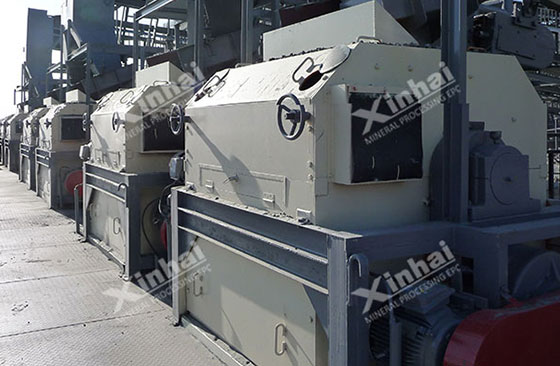
Hematite is a kind of iron trioxide (Fe2O3) without crystal water. It contains iron from 35% to 40%. The hardness of it is between 5.5 and 6.5, and the specific gravity is between 4.8 and 5.3. Hematite belongs to weakly magnetic iron ore. At present, the common beneficiation methods of hematite ore include: gravity separation, magnetic separation and flotation.
Gravity Separation Method of Hematite Ore
Hematite gravity separation method can be divided into single gravity separation method and spiral chute-shaking table combined gravity separation method according to its mineral properties.
Single Gravity Separation Method:
According to the mineral particle size conditions, it can be further divided into fine grain gravity separation and coarse grain gravity separation.
The fine grain gravity separation is to grind the crushed iron ore to dissociate the monomers and then pass the gravity separation to obtain fine-grained high-grade hematite concentrate. It is suitable for inlaid hematite with fine particle size and high magnetic content.
The coarse-grained gravity separation method mostly adopts the method of only crushing without grinding, and then discarding the crushed coarse tailings through gravity separation, which is mostly suitable for coarse-grained hematite ore.
Spiral Chute-Shaking Table Combined Gravity Separation Method:
mainly suitable for the beneficiation of medium and fine-grained hematite. The spiral chute can be used for roughing separation first, and then the coarse iron concentrate can be beneficiated by a shaking table.
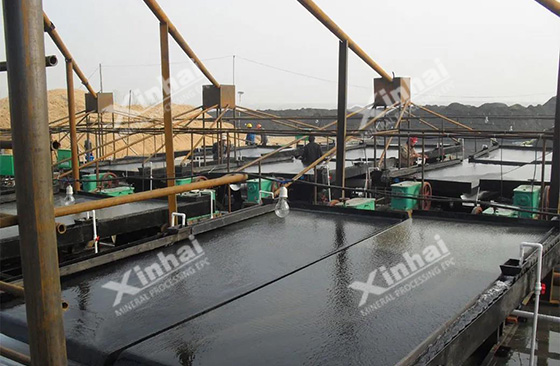
Magnetic Separation of Hematite Ore
The hematite magnetic separation method is mainly suitable for the beneficiation of hematite ore containing non-metallic minerals. When the slurry enters the separation stage, the magnetic ore particles can be magnetized under the action of an uneven magnetic field, adsorbed on the cylinder and brought to the discharge port; non-magnetic ore particles still exist in the slurry due to the small magnetic field.
Flotation of Hematite Ore
Hematite flotation method can be further divided into hematite positive flotation method and hematite reverse flotation method.
Hematite Positive Flotation Method:
Suitable for processing single hematite, mainly using anionic collectors to make hematite float out of the raw ore.
Hematite Reverse Flotation Method:
Suitable for hematite ore with high grade and buoyant gangue. It mainly uses anion and cation collectors to make hematite float out of the raw ore.
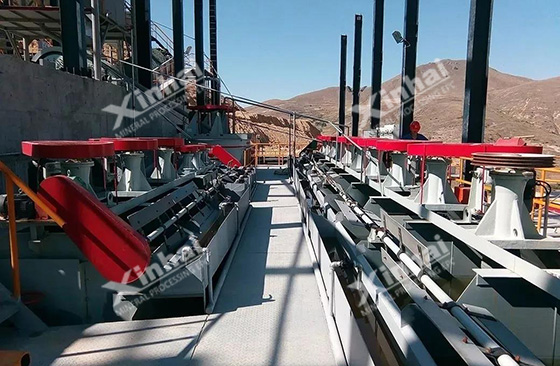
Limonite is iron trioxide (mFe2O3•nH2O) containing crystal water. The iron content of limonite ranges from 35% to 40%. Its ore is soft and has a small specific gravity. At present, the commonly used limonite beneficiation methods mainly include a single separation process and a joint separation method.
Single Separation Method of Limonite Ore
Single gravity separation method for limonite: This process is suitable for small-scale beneficiation plants. This process mainly use spiral chute for pre-enrichment and then use shaking tables to get concentrate.
Single flotation method for limonite: mainly suitable for the separation of limonite with simple properties.
These processes include positive flotation and reverse flotation. In general, positive flotation cannot be used alone, but needs to be used in combination with strong magnetic separation. Reverse flotation can perform single flotation through the combination of anion and cation.
Joint Separation of Limonite Ore
Gravity separation-strong magnetic separation method for limonite: mainly suitable for the separation of fine-grained limonite. After fine crushing or rod mill grinding, the limonite would be then washed, sieved, classified and deslimed. The coarse grain adopts gravity separation to get the concentrate; the intermediate grain uses magnetic separation to obtain the concentrate; and the fine grain and sludge use a high-gradient magnetic separator to get the concentrate.
Selective flocculation flotation method for limonite: After fine grinding, we should add sodium carbonate and water glass to the mineral to disperse the ore slurry well. Then we use selective flocculation method to selectively flocculate the limonite, and then use the flotation method to obtain high-grade limonite concentrate.
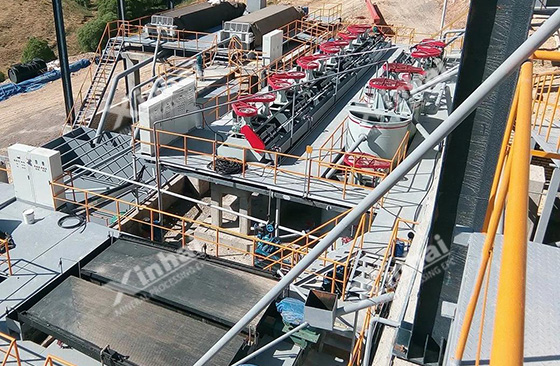
Siderite is a kind of iron carbonate mineral (FeCO3), its iron content is below 48%, the hardness is 3.5-4, and the specific gravity is 3.8. At present, the commonly used siderite beneficiation methods mainly include gravity separation, strong magnetic separation, flotation and magnetic roasting.
Gravity Separation Method of Siderite Ore
The gravity separation method is mainly suitable for single siderite with coarse grain. This process mainly uses heavy suspension beneficiation method or jig separation method.
Strong Magnetic Separation Method of Siderite Ore
The strong magnetic separation of siderite is mainly suitable for siderite weak magnetic separation tailings. This method mainly uses different magnetic permeability of the mineral to make the minerals pass the magnetic field to adsorb the magnetic minerals and collect them through the collecting funnel.
Flotation Method of Siderite ore
Siderite flotation method is mainly suitable for mixed iron minerals containing siderite. It mainly uses the surface chemistry property, hydrophobic flocculation and surface adsorption characteristics of siderite to separate and remove useful iron minerals by flotation.
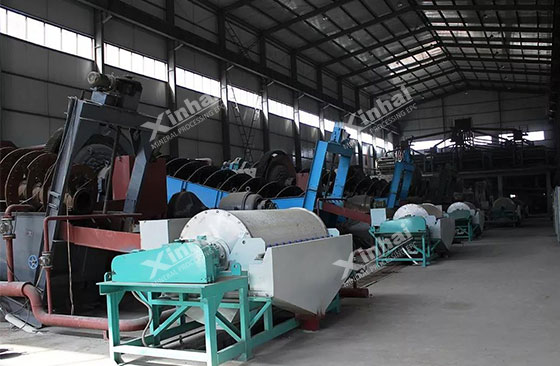
The above are four types of common iron ore concentrate process methods. The beneficiation methods for different types of iron ore are not the same. As for the selection of the beneficiation method, we should determine the properties of the ore through the beneficiation test first, and then customize the process flow and choose the process that suits us.
To find out more about our products and solutions, please fill out the form below and one of our experts will get back to you shortly.